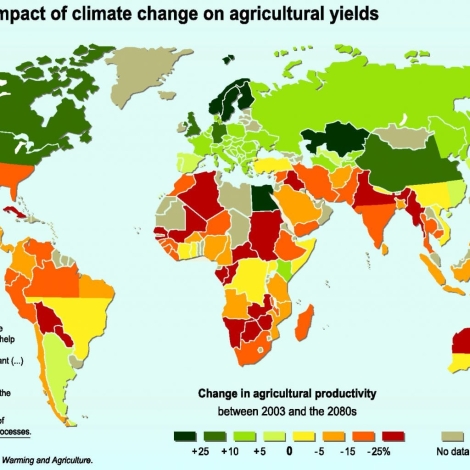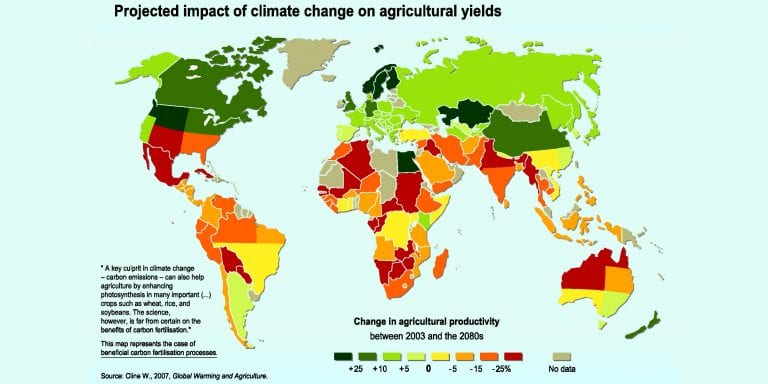Lack of information leads to uncertainty in decision making and outcomes analysis. Reliable information is necessary to implement and evaluate problems effectively. This is especially relevant in developing countries, such as Paraguay, that often have limited financial resources and infrastructure to confront challenges such as climate change. Paraguay, whose economy depends on agriculture and livestock, is at risk to be strongly impacted by climate change. In order to predict extreme weather events, epidemics, and other environmental factors that will impact its principle industries, present and past environmental data is essential. Nevertheless, the industrial, governmental, and academic sectors suffer from a lack of environmental records.
Carolina Recalde is a physics professor and studying her Master’s in Environmental Chemistry at the National University of Asunción (UNA) who has worked in Paraguay’s Environmental and Sustainable Development Ministry (MADES). While working for MADES, she took inventory of greenhouse gases emitted by the country. According to Ms. Recalde, there are various methods to take the inventory, depending on the amount of information one has.
In Paraguay, she says, “we deal with coarse information. As we say, messy information.”
The data required to carry out national greenhouse gas calculations can be precarious, incomplete, or not digitized. Some industries, such as the agricultural sector, have environmental records, but are unwilling to share them. For example, big ranchers and producers want to avoid additional taxes, and only share information that will benefit them.
“Everything nice, and that’s all they tell you in agriculture and livestock,” Ms. Recalde says.
Often, data simply does not exist. For example, there is no data on the composition of Paraguayan biodiesel, so experts estimate the calculations of biodiesel emissions from Brazilian and Argentinian biodiesel, introducing uncertainty into the results. As this data is an estimation, it does not truly represent and quantify the country’s biodiesel emissions. Nor can it influence with certainty emissions regulations and standards. Ms. Recalde associates the lack of environmental data with the absence of laws that demand strict documentation of activities and emissions, as well as the lack of centralization for these tasks.
Ana González, also a student at UNA, describes the importance of environmental data in Paraguay.
“To apply some model [with software] and get something reliable that represents reality in the closest way possible, as well as predicts a future scenario, you need a lot of data,” Ms. González says. Without sufficient data, the majority of models are not reliable, she adds.
Ms. González is a Paraguayan determined to fill the gap in environmental data. For her undergraduate thesis, she researched potable water quality in her city, Paraguari. As this was one of the first studies of its kind in Paraguari, Ms. González had to overcome many challenges. For example, she had to identify potential areas of groundwater contamination, such as gas stations. She used data from the General Direction of Statistical Census (DEGEEC) to locate such sites. However, this information was last updated in 2012. As many sites had changed over the seven years, Ana had to check every site in the area to verify its accuracy. She also had to manually count the number of cesspools and homes per hectare in her city for her survey, with a total of 3,593 grids or hectare (one hectare roughly equals 2.5 acres). Ana carried out 180 of 200 surveys alone.
The large amount of perseverance and effort to obtain environmental data, in addition to scarce funding, is a reason why data is often unavailable or unshared in Paraguayan academic research, Ms. González says.
It is “as if they are starting from scratch, even if a Paraguayan has researched a given topic for years”, leading to a discontinuity in data collected over the years. This greatly slows the progress of academic projects that would quickly fill the gaps in data, if information was shared properly, Ms. González says.
If absence of environmental data itself is a roadblock in the process of obtaining new data for countries like Paraguay, how does one overcome this obstacle? Ms. González believes it is important that countries have a mother database that is publicly accessible, to share results and connect researchers in similar fields.
For private entities that do not keep a record, Ms. Recalde recommends that private authorities collect data and only share the results with the entity. This would start a habit of data collection and increase awareness of environmental impact.
Both researchers mention the necessity of stricter laws that “dip into your pockets” regarding environmental records. Finally, both women express that education is a key tool. From childhood to professional development, they describe the importance of cultivating a habit of recording and sharing environmental data.
“A lot of work remains and there is a long journey ahead of us,” Ms. Recalde says. “We have to raise awareness [about environmental research], show, speak, and comment with simple language so everyone can understand.”
For more information about Carolina Recalde and Ana González’s research, they can be contacted at:
Carolina Recalde | nrecalde@ing.py.edu
Ana González | anabegonz91@gmail.com
About the Author
Alexandra Novak is an environmental chemist with a background in air quality and materials research. She recently completed a Fulbright Fellowship to Paraguay where she studied biomaterials for heavy metal remediation.

